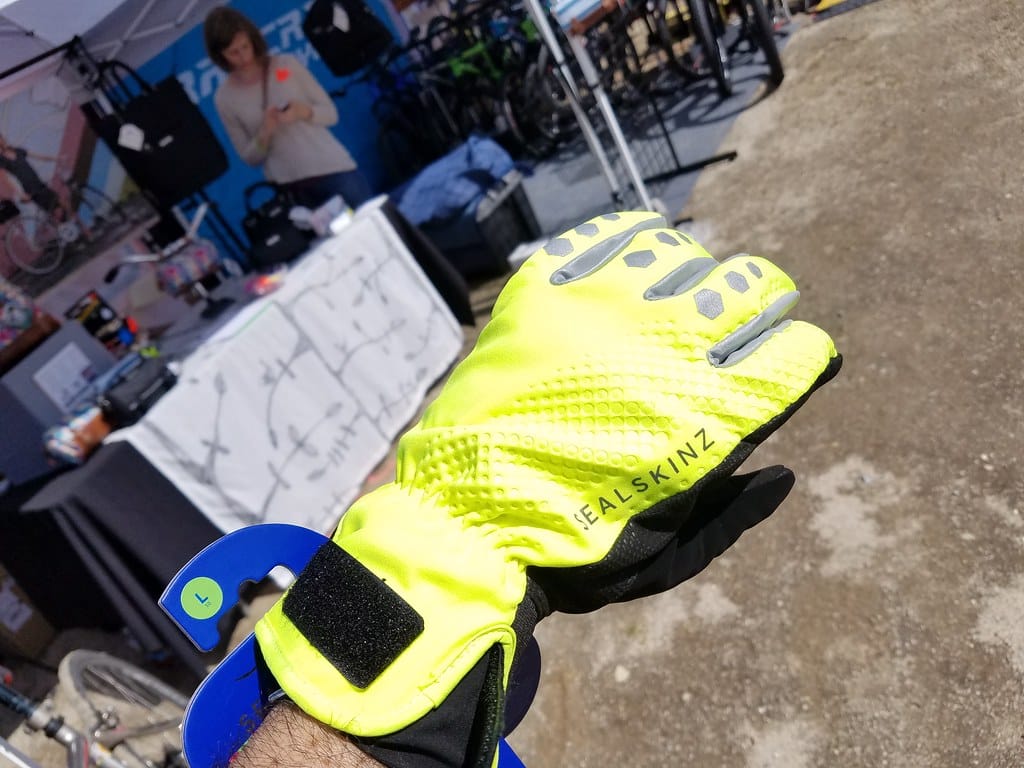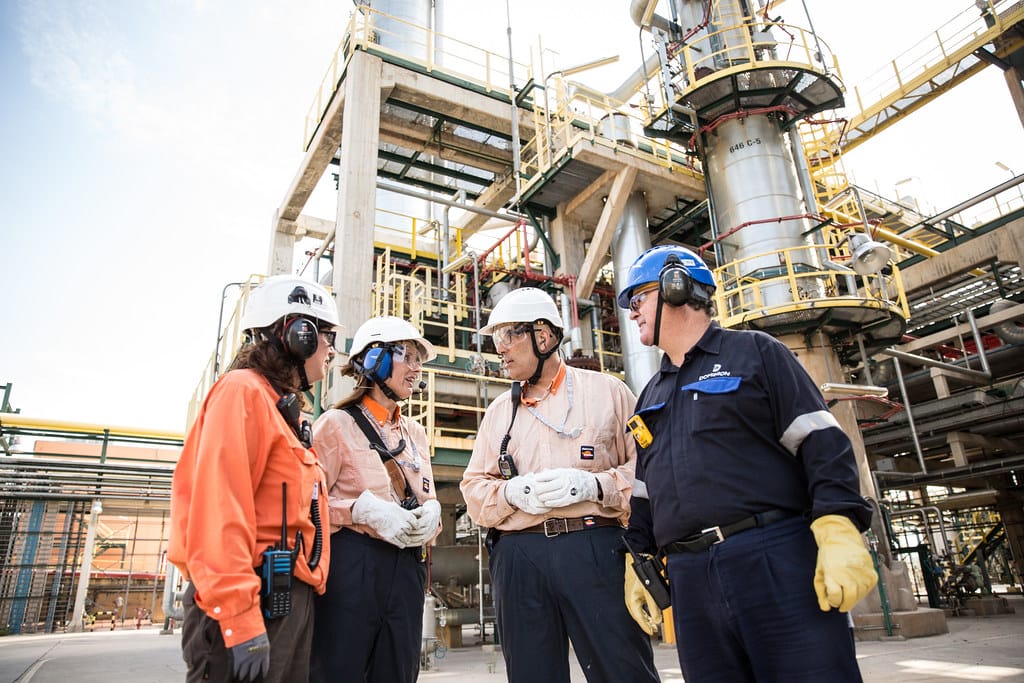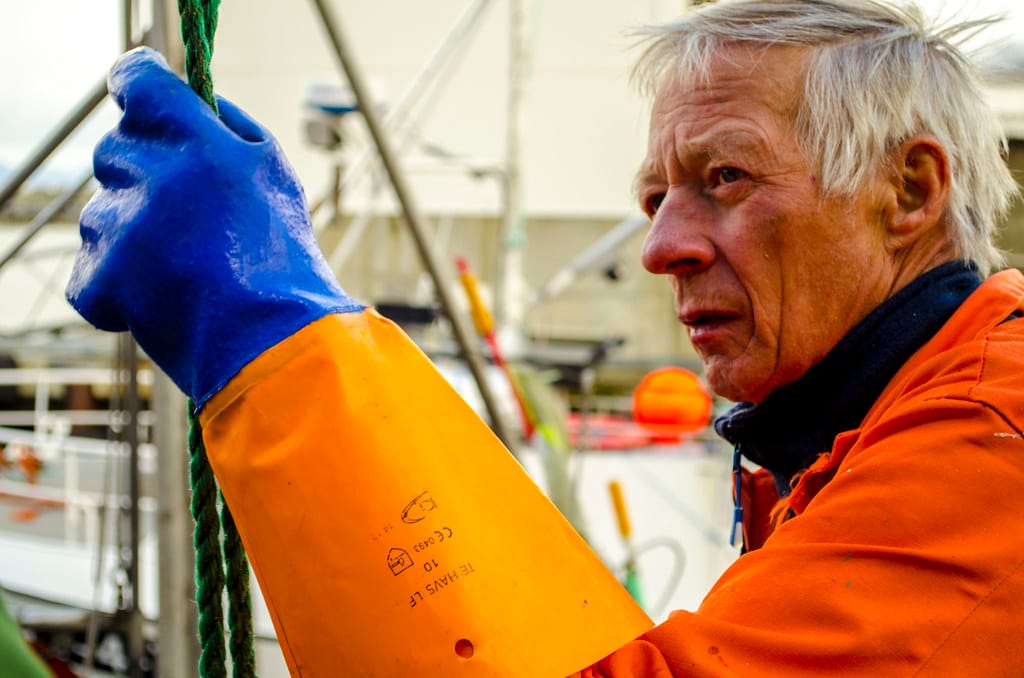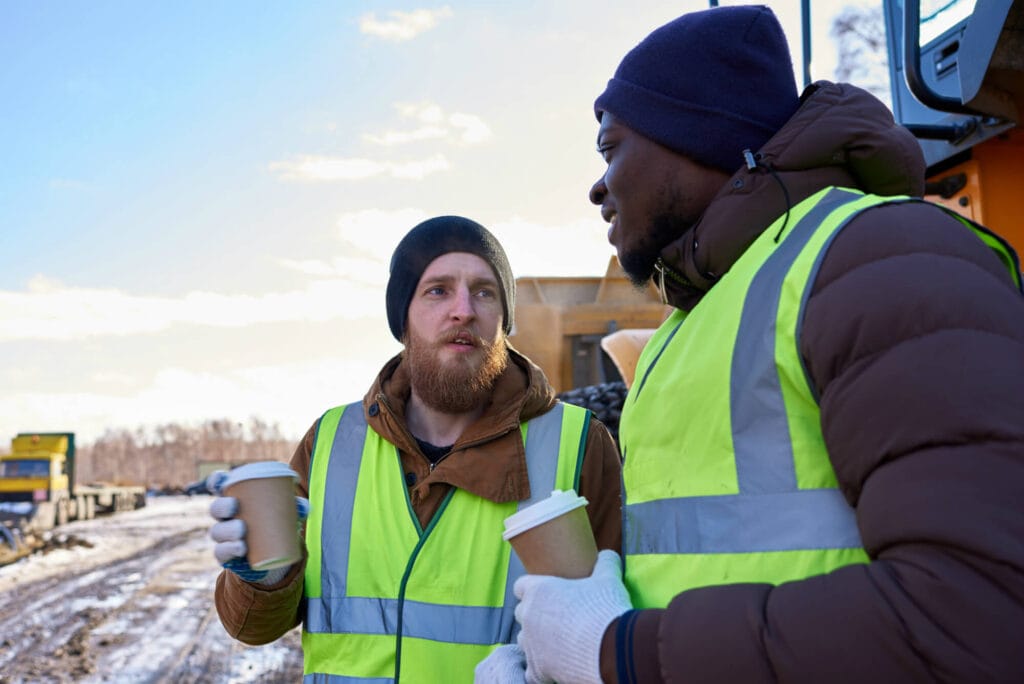
In the fast-growing African PPE and workwear market, small distributors often face tough challenges — unreliable suppliers, delayed shipments, and quality issues.
Yet, some rise above the rest, turning modest beginnings into thriving national networks.
This is the true story of a Ghanaian distributor who started with a small warehouse and a $20,000 test order, overcame repeated setbacks, and built one of Ghana’s leading workwear distribution networks in just three years.
A Ghana distributor started small, faced supplier problems, but achieved national success through brand building and reliable partnerships.
The secret? Patience, persistence, and choosing the right supplier relationship — turning every failure into a stepping stone toward leadership.
🌍 The Beginning: A Small Warehouse and a $20,000 Test Order
In 2021, Kwame, a 34-year-old entrepreneur from Accra, Ghana, decided to enter the industrial PPE and workwear business.
He had a background in logistics but no experience in safety equipment. His goal was simple — import reflective coveralls, safety vests, and boots from China and sell them to local construction companies.
💡 The Initial Setup:
- Warehouse: 100 square meters near Accra port
- Investment: $20,000 for first shipment
- Product Range: 5 SKUs — reflective vests, cotton coveralls, raincoats, helmets, gloves
- Customers: Local contractors and mining supply companies
Kwame’s first batch arrived six weeks later. The packaging looked good, prices were competitive, and he was optimistic about selling out quickly.
However, the real challenges were just about to begin.
⚠️ The Challenges: Delays, Certificates, and Quality Doubts
Like many first-time importers, Kwame encountered unpredictable problems that nearly destroyed his business before it started.
1. Delayed Shipment
The Chinese supplier promised 25 days delivery.
Reality: the goods arrived 60 days later — just as the rainy season began, when local demand shifted to rain gear.
💬 Kwame recalls:
“I had to explain to three clients that their delivery was stuck in transit. I almost lost their trust before even delivering.”
2. Fake Certificates
The supplier sent fake CE certificates for the reflective vests.
When one client cross-checked with a European database, the certificate turned out invalid.
Result:
- Lost a $5,000 construction project deal.
- Paid customs a fine for document inconsistency.
3. Quality Issues
After one month of use, several customers complained that the reflective tape peeled off after washing.
“We received calls daily from angry clients. The products looked fine, but durability was terrible.”
💸 Financial Impact:
| Issue | Consequence | Loss (USD) |
|---|---|---|
| Shipment delay | Missed projects, refunds | 3,500 |
| Fake certificate | Lost government tender | 5,000 |
| Poor quality | Replacements & discounts | 2,800 |
| Total | 11,300 |
Kwame had lost over half his starting capital within 6 months.
🔄 The Turning Point: Reliable Supplier + Brand Building
After multiple setbacks, Kwame decided to rethink his business model.
Instead of chasing the lowest price, he shifted his focus to reliability and branding.
🧭 Step 1: Finding a Reliable Supplier
He joined online B2B groups, searched for verified Chinese PPE manufacturers, and started communicating directly with factory owners instead of trading companies.
Finally, he connected with Workwear Solutions (China) — a factory specializing in certified workwear and PPE with real ISO, EN, and CE certifications.
💬 Kwame recalls:
“The difference was clear from the first email. They explained every certification, shared test reports, and even sent free pre-production samples.”
🧱 Step 2: Building Trust Step by Step
- Started with a trial order of 2000 vests and 1000 coveralls.
- Received regular production photos and QC reports.
- Shipment arrived on time, with proper labeling and packaging.
When his customers tested the new batch, the feedback was 100% positive.
🌟 Step 3: Branding and Differentiation
Kwame realized that selling generic PPE products limited his growth.
So, he decided to create his own brand — SafeGuard Ghana.
He invested in:
- Custom labels and printed packaging.
- A simple logo design representing safety and reliability.
- Uniform branding across vests, coveralls, and gloves.
Within 6 months, the SafeGuard brand began to gain recognition in the Ghana construction industry.
“Our clients started saying, ‘We trust SafeGuard.’ That’s when I knew I had something real.”
📦 The Growth Phase: From City Agent to National Distributor
Once Kwame’s product reputation grew, expansion became natural.
He didn’t need to chase clients anymore — they started coming to him.
🚀 Year 2 Milestones
| Focus Area | Action | Result |
|---|---|---|
| Product Range | Added helmets, rainwear, and reflective jackets | Increased average order value by 60% |
| Sales Network | Partnered with 3 sub-distributors (Kumasi, Takoradi, Tamale) | Expanded nationwide presence |
| Marketing | Participated in Ghana Construction Expo | Signed 5 corporate clients |
| Logistics | Moved to 300㎡ warehouse | Doubled storage capacity |
By the end of 2022, his business had grown from $20,000 capital to $150,000 annual revenue.
🧰 The Systems Behind the Success
Kwame didn’t just grow by luck — he built systems and discipline that supported his scale.
1. Customer Relationship Management (CRM)
He tracked every client’s purchase history, delivery schedule, and feedback in Google Sheets.
| Client | Location | Main Product | Last Order | Next Follow-Up |
|---|---|---|---|---|
| MegaBuild Ltd. | Accra | Reflective Vests | 2023-03-12 | 2023-05-10 |
| GreenMine Co. | Kumasi | Cotton Coveralls | 2023-02-28 | 2023-06-01 |
| SafeLogistics | Takoradi | Rainwear | 2023-04-05 | 2023-07-10 |
📈 Pro Tip: Even simple CRM tracking can double repeat orders by improving timing and service.
2. Quality Control Routine
Kwame requested inspection photos and videos before every shipment.
He also kept 10% of the stock for in-house testing before release.
3. Brand Consistency
Every box, label, and invoice carried the SafeGuard logo.
This created professional consistency that built customer trust.
🇬🇭 Case Study Results: 3 Years, 10x Growth, National Recognition
By 2024, SafeGuard Ghana had become one of the top 5 PPE distributors in the country.
They supplied over 40 construction firms, government projects, and oil & gas companies.
📈 Performance Overview:
| Year | Annual Revenue (USD) | No. of Clients | Team Size | Warehouses |
|---|---|---|---|---|
| 2021 | $20,000 | 5 | 1 | 1 |
| 2022 | $150,000 | 15 | 5 | 1 |
| 2023 | $350,000 | 35 | 12 | 2 |
| 2024 | $550,000 | 50+ | 18 | 3 |
Key Achievements:
- Exclusive distribution rights for 2 PPE brands.
- Registered SafeGuard trademark in Ghana.
- Built nationwide network with 6 sub-distributors.
- Introduced online B2B ordering platform.
💬 Kwame reflects:
“It wasn’t just about money. It was about building trust.
Every time we solved a problem for a client, they came back with two new ones.”
🧭 Expansion Strategy: Scaling Beyond Ghana
By the end of 2024, Kwame began planning expansion to Ivory Coast, Nigeria, and Togo.
His approach: replicate the proven Ghana model.
🌍 Regional Expansion Blueprint:
- Identify one partner per country with warehouse capacity.
- Provide them with SafeGuard-branded materials.
- Handle regional logistics from Accra port.
- Maintain consistent pricing and marketing.
📌 Lesson Learned:
“Don’t grow fast. Grow solid.
If your base is strong, regional markets are easy to copy.”
🧾 Template: Distributor Growth Tracking Sheet
| Year | Goal | Action Plan | Milestone | Status |
|---|---|---|---|---|
| Year 1 | Market Entry | Test orders, evaluate suppliers | First sale completed | ✅ |
| Year 2 | Build Brand | Launch SafeGuard label | Partnered 3 sub-dealers | ✅ |
| Year 3 | National Expansion | Attend expo, open new warehouse | Sales in 8 regions | ✅ |
| Year 4 | Regional Growth | Identify West Africa partners | Onboarding started | 🔄 |
| Year 5 | Digital Sales | Launch e-commerce platform | In development | ⏳ |
🧠 Tip: This sheet can be maintained in Excel or Airtable to track real-time progress and ensure every year contributes to a strategic goal.
💬 Lessons Learned from Kwame’s Journey
1. Cheap is Expensive
Choosing the lowest-priced supplier cost Kwame nearly half his startup capital.
Reliable suppliers are the foundation of long-term business.
2. Branding Builds Value
A product with your logo and reputation behind it sells faster and builds loyalty.
3. Communication Prevents Crisis
Regular updates, clear documents, and verified certificates saved him from repeated failures.
4. After-Sales Service = Repeat Orders
By calling clients after delivery, he created personal trust that competitors couldn’t match.
5. Long-Term Mindset
Instead of switching products each year, he built one strong brand that customers recognized.
💬 Quote from Kwame:
“I stopped chasing profits and started chasing reputation. The profits followed automatically.”
🏁 Conclusion: Persistence + Right Partners = Rapid Growth
Kwame’s journey from a small warehouse to a national PPE distributor is a lesson for every importer and agent in emerging markets.
🔑 Key Takeaways:
- Start small but think big.
- Choose reliable suppliers — quality defines your reputation.
- Invest in your brand, not just your inventory.
- Follow up and support customers — that’s how you win loyalty.
- Document everything: systems, feedback, certifications.
💬 Final Insight:
“Success in the workwear business isn’t built on one order. It’s built on every follow-up, every solved problem, and every satisfied customer.”
📩 Need help building your PPE distribution roadmap or branding system?
Email: [email protected]
🌐 Website: www.workwearsolutions.net
Zion Zhang
Recent Posts
 The Nigerian Agent Who Lost $50,000 on Fake Certificates — Then Came Back Stronger2025年10月20日Introduction In the global trade of PPE and industrial […]
The Nigerian Agent Who Lost $50,000 on Fake Certificates — Then Came Back Stronger2025年10月20日Introduction In the global trade of PPE and industrial […] How a Brazilian Trader Used $5,000 to Break into the PPE Market2025年10月20日Introduction In a world where industrial safety and […]
How a Brazilian Trader Used $5,000 to Break into the PPE Market2025年10月20日Introduction In a world where industrial safety and […] Scaling Your Workwear Brand: From Local Agent to Regional Distributor2025年10月15日In the workwear and PPE industry, many businesses start […]
Scaling Your Workwear Brand: From Local Agent to Regional Distributor2025年10月15日In the workwear and PPE industry, many businesses start […] After-Sales Service & Customer Retention in the Workwear Business2025年10月15日In the global workwear and PPE industry, many suppliers […]
After-Sales Service & Customer Retention in the Workwear Business2025年10月15日In the global workwear and PPE industry, many suppliers […] Government & Corporate Contracts: Winning Large PPE & Workwear Deals2025年10月14日Government & Corporate Contracts: Winning Large PPE […]
Government & Corporate Contracts: Winning Large PPE & Workwear Deals2025年10月14日Government & Corporate Contracts: Winning Large PPE […] Marketing Tactics: How to Promote Workwear in Africa, Middle East & Latin America2025年10月12日Marketing Tactics: How to Promote Workwear in Africa, […]
Marketing Tactics: How to Promote Workwear in Africa, Middle East & Latin America2025年10月12日Marketing Tactics: How to Promote Workwear in Africa, […]
CONTACT US
- Feel free to contact us any time. We will get back to you as soon as we can!
- +86-17303331701
